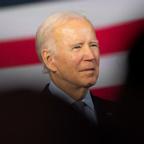Companies eager for IPOs feel thwarted by slow market
— -- Entrepreneurs need a good idea. They need guts. And ultimately, many of them want an IPO so they can take their new business to the next level.
But the virtual lockdown in the initial public offering market has snatched that golden ring right out of entrepreneurs' hands, leaving a group of frustrated executives at a loss as to how to raise capital and help their businesses grow. They say it's snuffing out innovation, new ideas and job creation at a time when the country needs it most.
Meanwhile, it's also preventing the venture capitalists who provided seed money to these businesses from cashing out and betting the money on other new firms that need to get off the ground.
For entrepreneurs, the shutdown in IPOs "has caused a very difficult situation for anyone in a fledgling new business," says Brian Appel, CEO and founder of Changing World Technologies, an alternative energy company that pulled its IPO plans on Feb. 17. "The debt and equity markets are closed to new ideas."
The IPO market has been essentially halted for more than a year. Just two companies have sold stock to the public this year so far, down from 21 during the same time period last year, says Renaissance Capital.
And 2008 was one of the worst IPO markets in recent history, with just 43 companies going public, down from 272 in 2007, 219 in 2006, 214 in 2005 and 217 in 2004.
While entrepreneurs are often hardwired to be optimistic, the reality of not being able to raise money from the stock market is causing them to adjust, tweak or forge ahead on their long-term plans. How some entrepreneurial companies are reacting to a world with few IPOs:
Changing World Technologies.
The company, developing ways to turn fat, grease, feathers and other waste into fuel, is one of 20 companies that have postponed or withdrawn their IPOs in 2009, Renaissance Capital says.
The company hoped to raise roughly $28 million to further its research into products to help the U.S. reduce its demand for imported oil.




